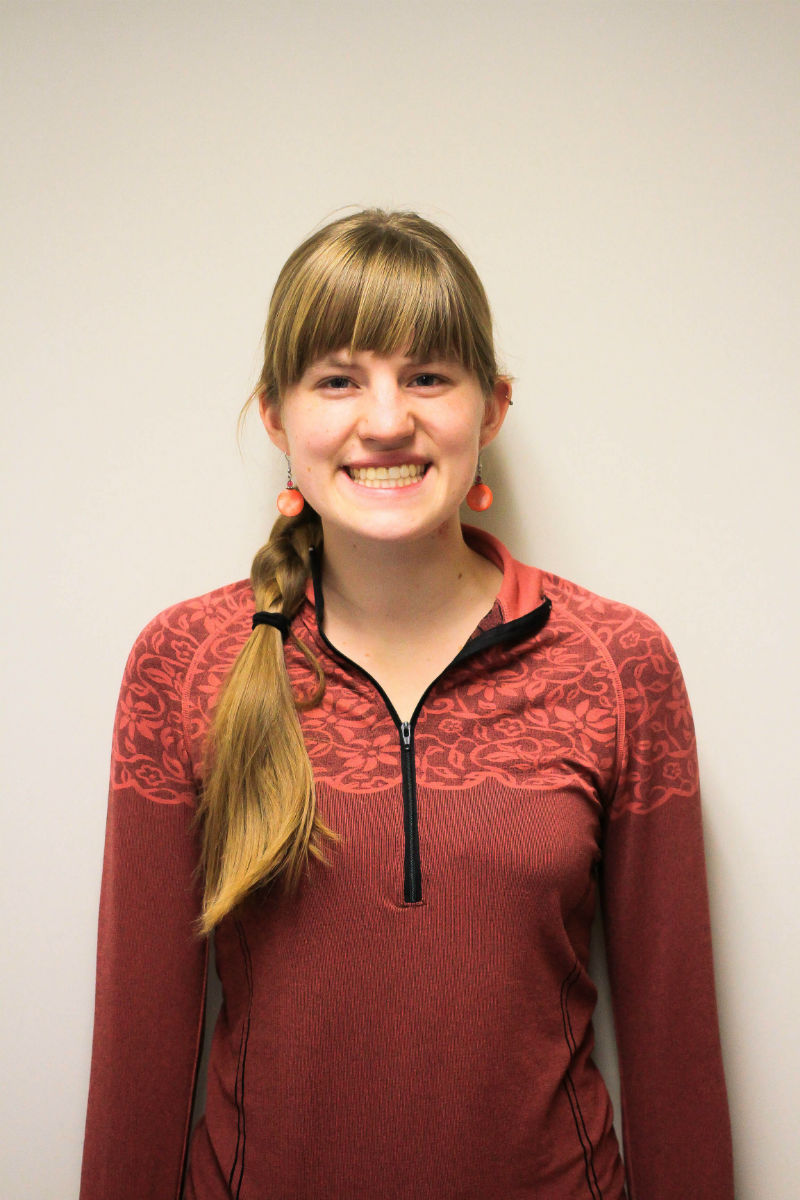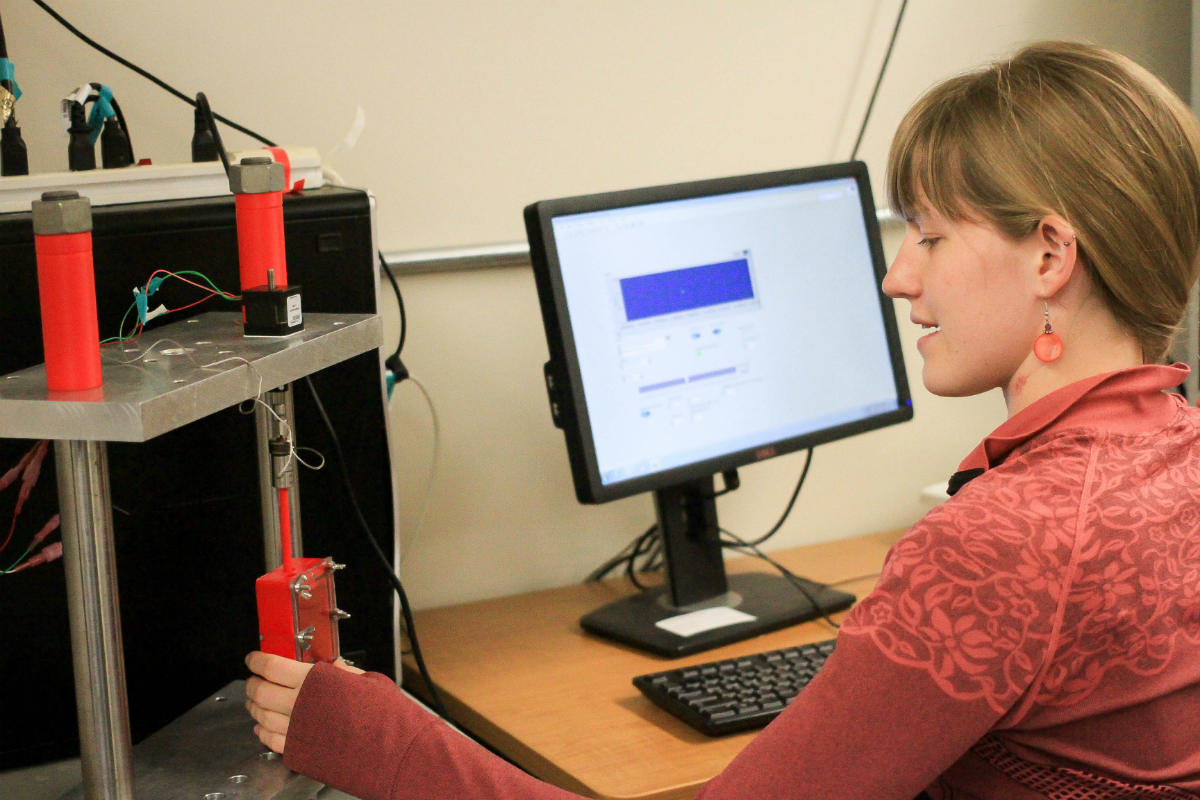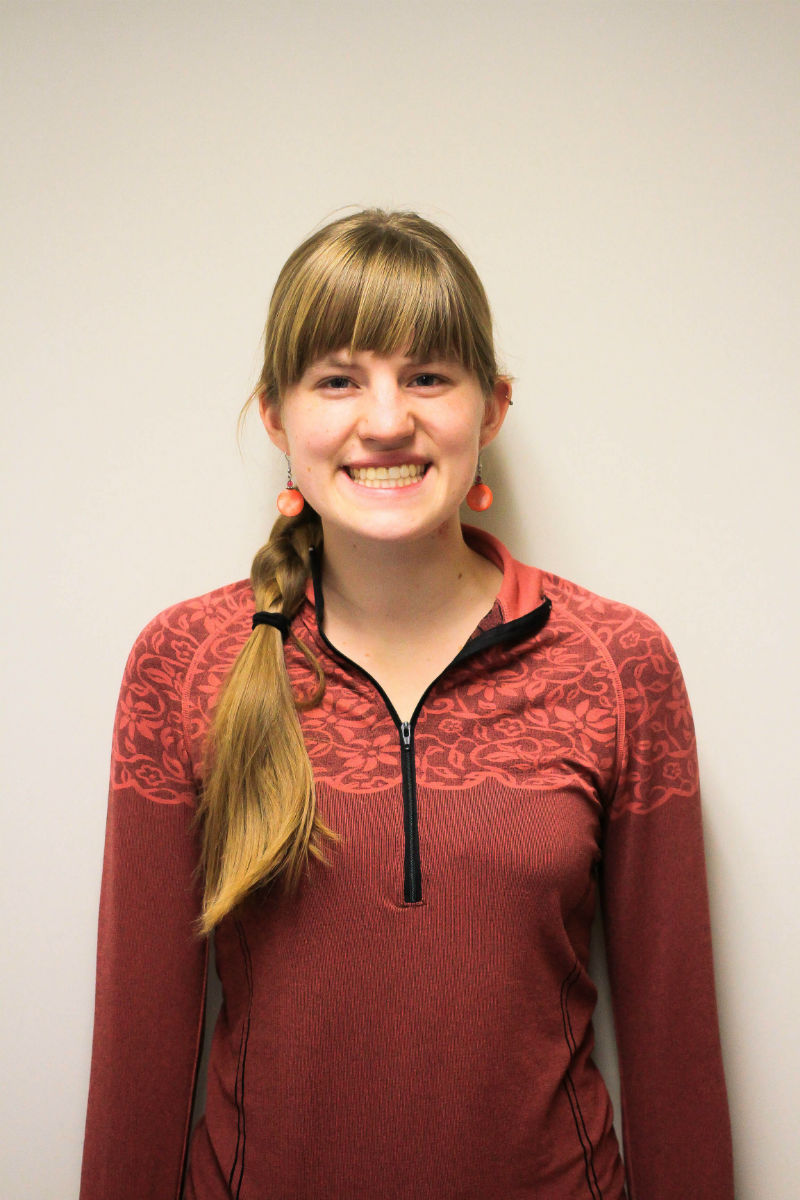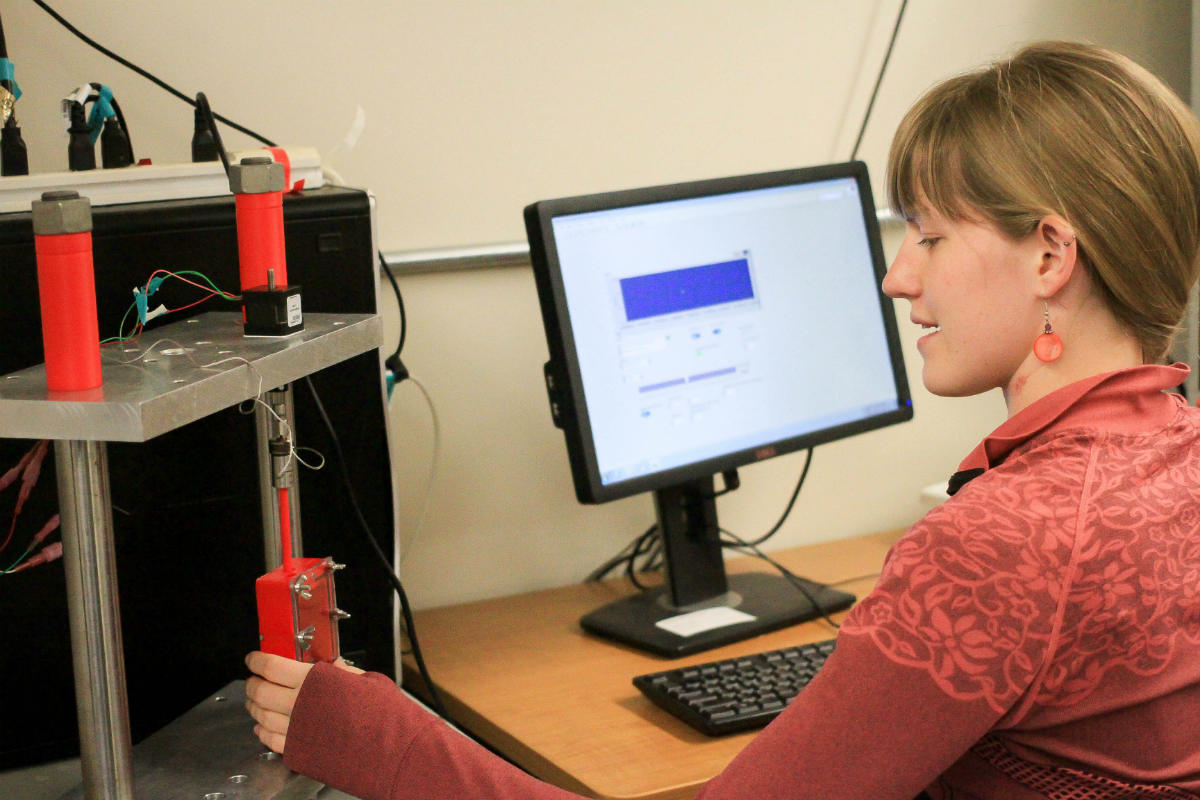Building Her Future
Research helps biological engineering student prepare to help children with disabilities
When Abigail Raveling was in high school, she volunteered at a local hospital. Working in the pediatric physical therapy department with children and their therapists, she saw firsthand how hard they worked, together, to overcome the children’s physical challenges.
“I was impressed by both the therapists’ desire to help the kids reach their full potential physically, as well as the determination that the kids exhibited as they strived to overcome physical obstacles,” said Raveling, 20, a University of Idaho junior from Hamilton, Montana. “This experience made me want to be a physical therapist so that I could help kids with disabilities experience a life with the most independence and mobility possible.”
Raveling is majoring in biological engineering in the College of Engineering. When she first heard about the major, she wanted to learn more, and discovered it would be great foundation for her future career as a pediatric physical therapist.
“I’m hoping that biological engineering will give me a background in biomedical equipment so that I can help influence how medical equipment is used,” she said.
With Nathan Schiele, an assistant professor of biological engineering, Raveling is working on a research project studying how tendon cells react to strain. To simulate the kind of strain tendon cells experience within people’s bodies, Raveling uses a bioreactor she designed herself. The device simulates the biological process, with a chamber for the cell sample and a motor to move the sample.

Raveling received an OUR SURF Grant. Learn more.
“Tendons in your body are exposed to strain all the time,” Raveling said. “And we want to see how that affects how the cells align the collagen. We get to take this complex system of the tendon and narrow it down into looking at what the cells do under tensile strain.”
For Raveling, this hands-on experience has been fun and rewarding.
“It’s just been fun getting to design and refine a system so that it’s usable for experiments,” she said.
Biological engineering will influence how physicians and therapists treat the human body in the future, including the use of advanced prosthetics. For Raveling, the technology that comes out of this field and the knowledge she gains studying it will be tools to help children with disabilities.
“I want to be a part of helping them to have a successful future,” she said. “I love working with kids because of their energy and excitement for life.”

WRITER: Madison Billingsley, a senior from Covington, Washington, is majoring in creative writing.
PHOTOGRAPHER: Irish Joy Martos is a senior international student from the Philippines studying psychology.








